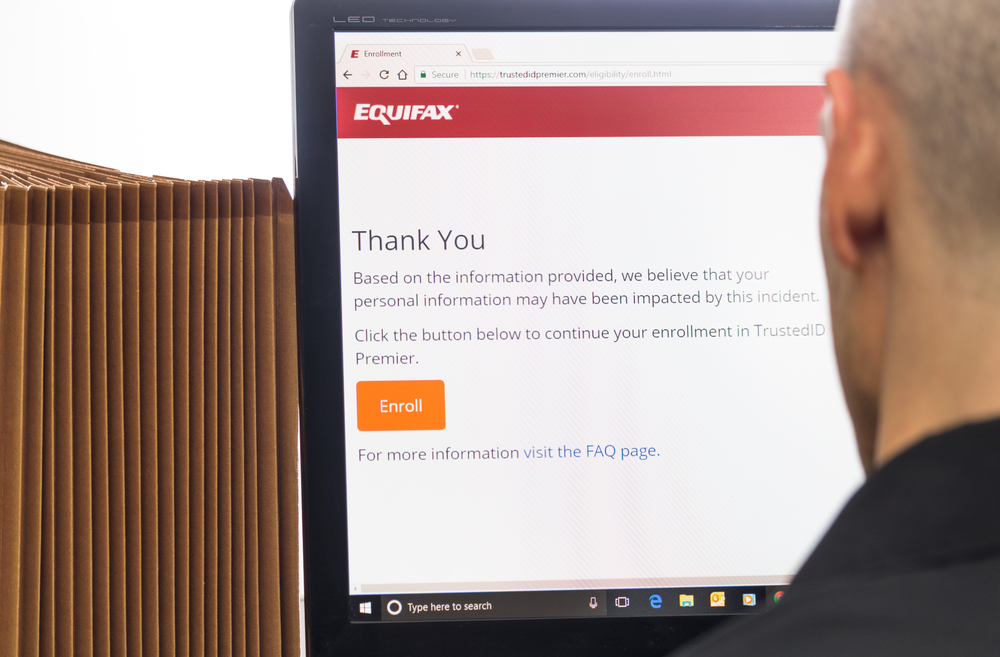An inferior vena cava (IVC) filter is a medical device that aims to keep blood clots from reaching the lungs. Implanted in the vein that transports deoxygenated blood from the body’s lower half to the heart’s right atrium, these filters are supposed to catch clots before they can pose life-threatening complications.
Doctors usually recommend this device to patients who have deep vein thrombosis (DVT), a condition characterized by the formation of blood clots, but who should not take anticoagulation medication. Anticoagulants, or what are commonly called blood thinners, are not recommended for those who have uncontrolled high blood pressure, kidney disease, or liver disease because they face serious complications if bleeding occurs.
However, in recent years, it’s become clear that IVC filters pose major risks of their own. Their design appears defective as the cage-like device is likely to puncture the inferior vena cava. The filter can also fracture, which puts the lungs, heart, and other organs at risk of perforation should the pieces migrate.
If you or someone you love suffered serious complications following IVC filter implantation, your family may have grounds for legal action against the manufacture. To see if filing a claim could be worthwhile, fill out our form. We’ll connect you with a local law firm that’s equipped to evaluate the situation.
- History of IVC Filters & Related Lawsuits
- What Should I Do if I Have Been Affected by a Defective IVC Filter?
- How Do I Know if I Qualify to Be Part of an IVC Filter Lawsuit?
- How Does an IVC Filter Lawsuit Work?
- How Long Does It Take to Resolve an IVC Filter Lawsuit?
- What Is the Statute of Limitations for an IVC Filter Lawsuit?
- How Much Can You Recover From an IVC Filter Lawsuit?
- How Long Does It Take to Receive the Funds After Resolving an IVC Filter Lawsuit?
- Final Thoughts
The U.S. Food and Drug Administration (FDA) approved C. R. Bard’s Recovery IVC Filter in 2002 and Cook Medical’s Tulip IVC Filter in 2003. When it became clear that these devices—and those with similar designs from other manufacturers—were inherently defective, injured patients and their families started taking action.
The fact that these filters had been responsible for dozens of preventable deaths was publicized by NBC News in 2015. Apparently, C.R. Bard had known at least as early as 2004, however, that its device had a much higher failure rate than those of its competitors.
Within four years of NBC’s broadcast, thousands of lawsuits had been filed against C.R. Bard and Cook Medical. A federal panel combined more than 14,000 of these cases into two multidistrict litigations (MDLs) to streamline the proceedings. MDLs allow courts to consolidate civil actions into single pretrial proceedings without jeopardizing the integrity of each individual case.
Recognizing the Risks of Certain IVC Filters
After evaluating nearly a thousand reports of adverse events related to IVC filter implantation, the FDA issued a safety alert in 2009. Their greatest concerns regarded device migrations, detached components, filter fractures, and filter perforations. They updated this communication with additional recommendations in 2014.
In 2013, the Journal of American Medical Association evaluated the failure rate of IVC filters. They found that only a mere fraction of the retrievable devices was actually removed, despite the FDA’s recommendations that they be retrieved no more than 54 days after implantation. What’s more, a number of patients who had devices longer than necessary suffered venous thrombotic events or pulmonary embolisms.
While every medical procedure carries risks, they’re usually outweighed by the potential benefits. When it comes to implanting certain kinds of IVC filters, however, the possible complications simply don’t seem worth the prospective advantages.
This fact is illustrated by the many IVC filter recalls that occurred between 2005 and 2015. During that period, more than 81,000 individual units were recalled. However, versions of the device that haven’t ever been recalled are still implanted in patients to this day.
If you or someone you love sustained vascular perforation, organ damage, or some other serious complication following the implantation of an IVC filter, your family may have grounds for a claim against the manufacturer. While taking action won’t erase what happened, it could yield the money needed to put your lives back together.
To get started, fill out our form. We’ll help you find a local product liability attorney who offers free case evaluations so you can determine how best to proceed.
Past Payouts Awarded
Most IVC filter lawsuits are still in their earliest stages; however, both C.R. Bard and Cook Medical have already settled at least a few cases each for undisclosed amounts. There have also been a few multimillion-dollar payouts awarded. In 2016, for example, a woman secured a $3.6 million jury verdict against C.R. Bard over the Bard G2 filter. She took action after the device “tilted, migrated and fractured.”
The largest IVC filter-related award to date is $33.7 million. A jury awarded a woman $3.4 million in actual damages and $30.3 million in punitive damages against Rex Medical over their Option device. The plaintiff claimed the defective filter perforated her inferior vena cava and punctured her aorta, renal vein, and pancreas.

What Should I Do if I Have Been Affected by a Defective IVC Filter?
If you were seriously hurt by an IVC filter, your first priority should be your health. Get the care you need as soon as possible to ensure your condition doesn’t worsen, and make sure to follow all medical advice once you do.
In addition to protecting your health, seeking prompt treatment will make it easier to prove causation should you decide to file a claim. Your medical records will help link the complications you suffered to the device in question.
What’s more, getting adequate care right away will demonstrate a commitment to mitigating damages. This, in turn, will make it much harder for the liable party to shift some portion of fault your way in an effort to reduce their own financial obligation.
Once your health has stabilized, your next priority should be your case. The sooner you take action, the sooner you may be able to recover a payout that allows you to continue supporting your family.
The easiest way to determine if you have grounds for a claim is by consulting a product liability lawyer. You can find one by completing our form; after reviewing your information, we’ll connect you with a local attorney who’s handled cases similar to yours.
Most reputable personal injury firms offer free case reviews, which you should take advantage of. During this meeting, the lawyer will evaluate the situation to determine whether taking action could be worthwhile. If it seems you have a legitimate claim, your attorney will give you specific steps for proceeding, as well as more general advice for contributing to the strength of your case.
For example, you might be instructed to:
- Stay off social media
- Start a personal injury journal
- Track all injury-related expenses
- Save all relevant records, receipts, bills, and invoices
- Defer any correspondence from the opposing party to your legal team
- Refuse to give the claims adjuster a recorded statement
How Do I Know if I Qualify to Be Part of an IVC Filter Lawsuit?
Since every product liability claim is ultimately unique, there’s no standard set of questions you can ask to determine with 100% certainty whether you have grounds for a claim. Generally speaking, though, you’re probably eligible to sue the manufacturer of your IVC filter if you suffered device-related complications following implantation.
To confirm that you qualify to be part of an IVC filter lawsuit, fill out our form. We’ll connect you with a seasoned legal professional who can review the facts of the case before explaining how you should proceed.
How Does an IVC Filter Lawsuit Work?
Although it’s true that most personal injury claims are settled, those involving IVC filters are inclined to proceed all the way to trial because so much is at stake for both parties. When you’re facing seven figures in damages—which is what many of these cases claim—going before a judge or jury may be the only way to pursue the compensation you deserve.
While every product liability lawsuit is unique, they all follow the same basic proceedings. For example, such cases always commence with a complaint filed by the plaintiff. This document details how the defendant wronged the plaintiff and what kinds of damages the latter incurred as a result.
If the defendant cannot file a motion to dismiss the action, they must submit an answer to the complaint by a specific date. This document might challenge—or outright deny—some or all of the allegations. It will also state whether the defendant wishes to proceed with a jury trial. Assuming the case proceeds, discovery will follow.
During the discovery stage, both parties conduct their own investigations. They might depose witnesses, consult medical experts, review relevant studies, and evaluate the extent of the damages. Depending on the kind of evidence that comes to light during discovery, further motions may be filed. Otherwise, both parties will be expected to appear in court and present their respective cases before a jury issues a verdict.
It’s important to note that the parties can come to a settlement on their own at any point during the trial process, thereby retaining control of the outcome. It’s also worth noting that the verdict could be appealed if the case does end up before a judge.
Do I Need Legal Counsel to Join an IVC Filter Lawsuit?
Plaintiffs are not required by law to secure representation. That means you could take action without hiring an attorney first, if you felt so inclined. When going up against a medical device manufacturer, though, you’re going to want to level the playing field.
Major corporations have the resources to challenge every claim that comes their way. Thankfully, personal injury lawyers have the resources to gather sufficient evidence of liability against them. If you’re looking for a seasoned attorney to represent you, fill out our form. We’ll help you arrange an initial case review with a lawyer in your area.
How Long Does It Take to Resolve an IVC Filter Lawsuit?
It’s not uncommon for personal injury claimants to hope for a fast settlement. Chances are their financial security is in jeopardy, after all, and they likely need an influx of cash to keep supporting their loved ones while they recover.
Unfortunately, since claims involving defective medical devices are inherently complex, they require more than a few weeks. While it may be possible to secure a settlement in a matter of months, you can expect your case to take a year or more if it ends up going to trial.
Although a reputable personal injury attorney won’t promise to achieve a payout by a certain date because legal proceedings are fairly unpredictable, he or she will keep you informed every step of the way.
What Is the Statute of Limitations for an IVC Filter Lawsuit?
If your IVC filter was implanted several years ago, you’ll want to seek counsel as soon as possible to avoid missing any critical filing deadlines. Every state has strict statutes of limitations, which prohibit an injured party from taking action after a certain amount of time has passed.
These filing deadlines typically range from one to six years. Should you attempt to go to court after the applicable deadline has passed, the judge will likely dismiss your case.
How Much Can You Recover From an IVC Filter Lawsuit?
Just as there’s no way to predict how long it might take to resolve your case, there’s no way to be sure how much it’s worth until it’s actually been settled or addressed in court. However, an experienced product liability lawyer can help you determine a starting point for the negotiations by reviewing the kinds of damages you incurred.
When it comes to tort claims, every state allows for the recovery of both economic and non-economic damages. Examples include lost wages, medical bills, and pain and suffering. Most states also permit punitive awards. Instead of compensating claimants for actual losses, these funds aim to punish liable parties for gross negligence or intentional misconduct and to deter such behavior in the future.
Because the injuries associated with IVC filters can be severe, it’s not uncommon for these suits to seek seven figures in damages. It’s important to remember that every claim is unique, though, and just because others have secured multi-million dollar payouts doesn’t mean you’re guaranteed a sizable sum, as well.
At the end of the day, the total value of your claim will depend on a variety of factors. Examples include the severity of the injuries you sustained, the strength of evidence you present, and the liable party’s willingness to cooperate.
How Long Does It Take to Receive the Funds After Resolving an IVC Filter Lawsuit?
If your case is resolved in your favor, you can expect to receive the funds in a matter of weeks. The defendant will likely give the payment to your lawyer, who will cover all outstanding balances—e.g. health insurance liens, court costs, and attorney fees—before giving you the remaining balance.
In most cases, personal injury payouts are not considered taxable income, so you may be able to spend 100 percent of the funds you end up receiving as you see fit.
Final Thoughts
If an IVC filter caused you serious injuries, you are not alone. Defective devices have been hurting patients for decades. Thankfully, like most of those patients, you may be entitled to compensation for all the damages your family incurred as a result of the associated complications.
To see if you have grounds for a product liability claim—and, if so, how best to proceed—start by filling out our form. We’ll connect you with a local personal injury attorney who can protect your best interests from the day you first visit their office to the day your case is resolved.





